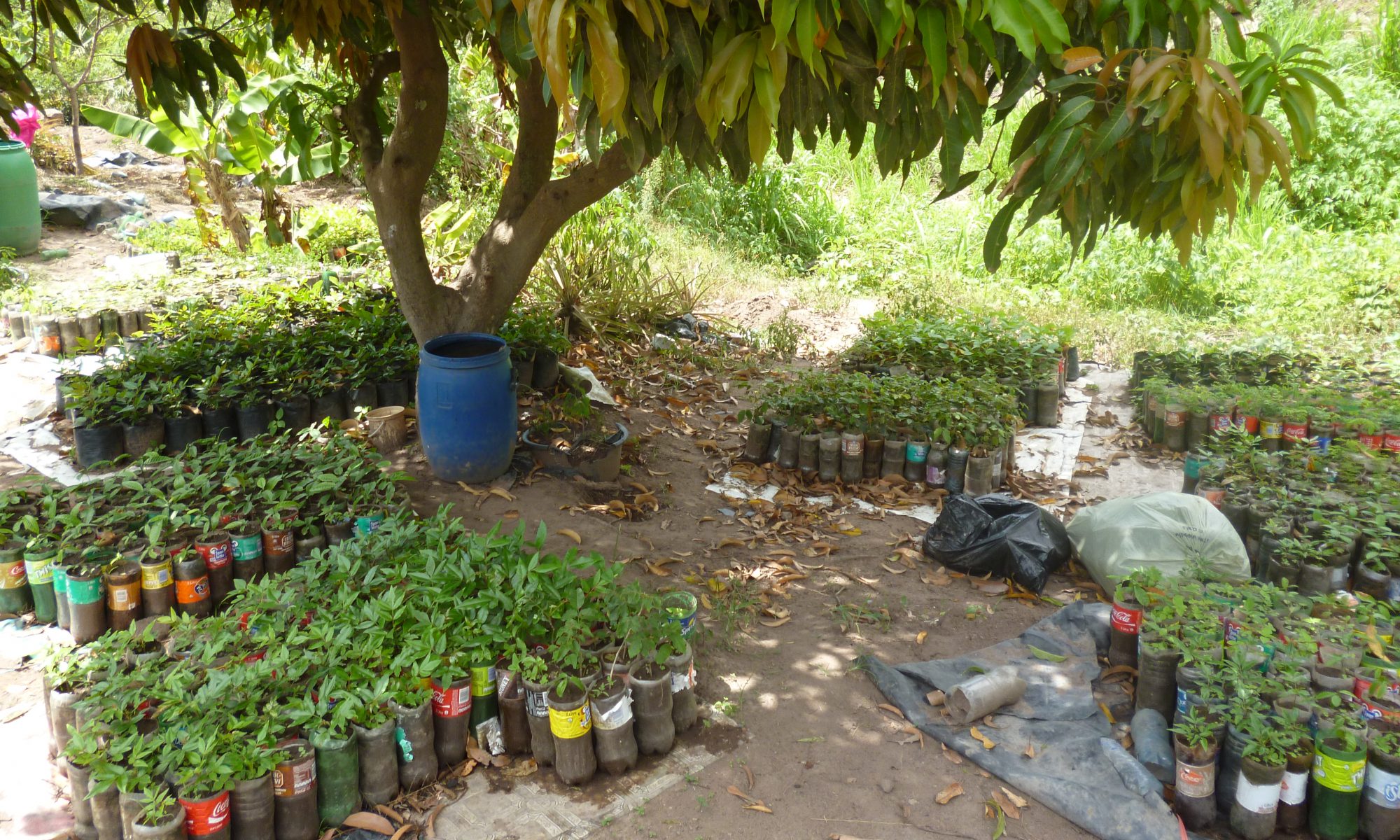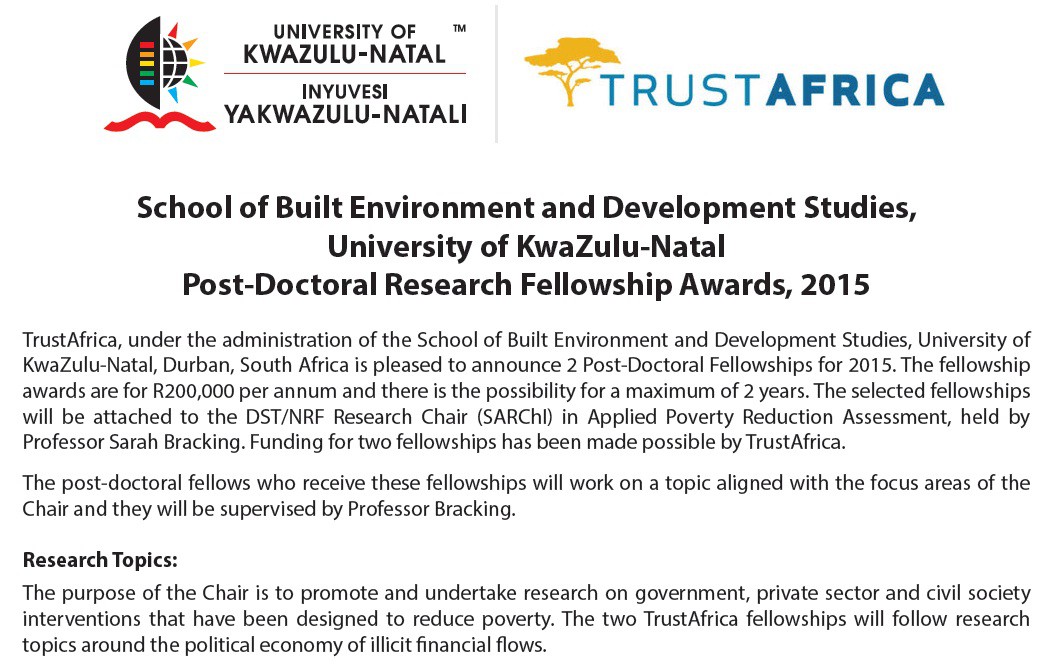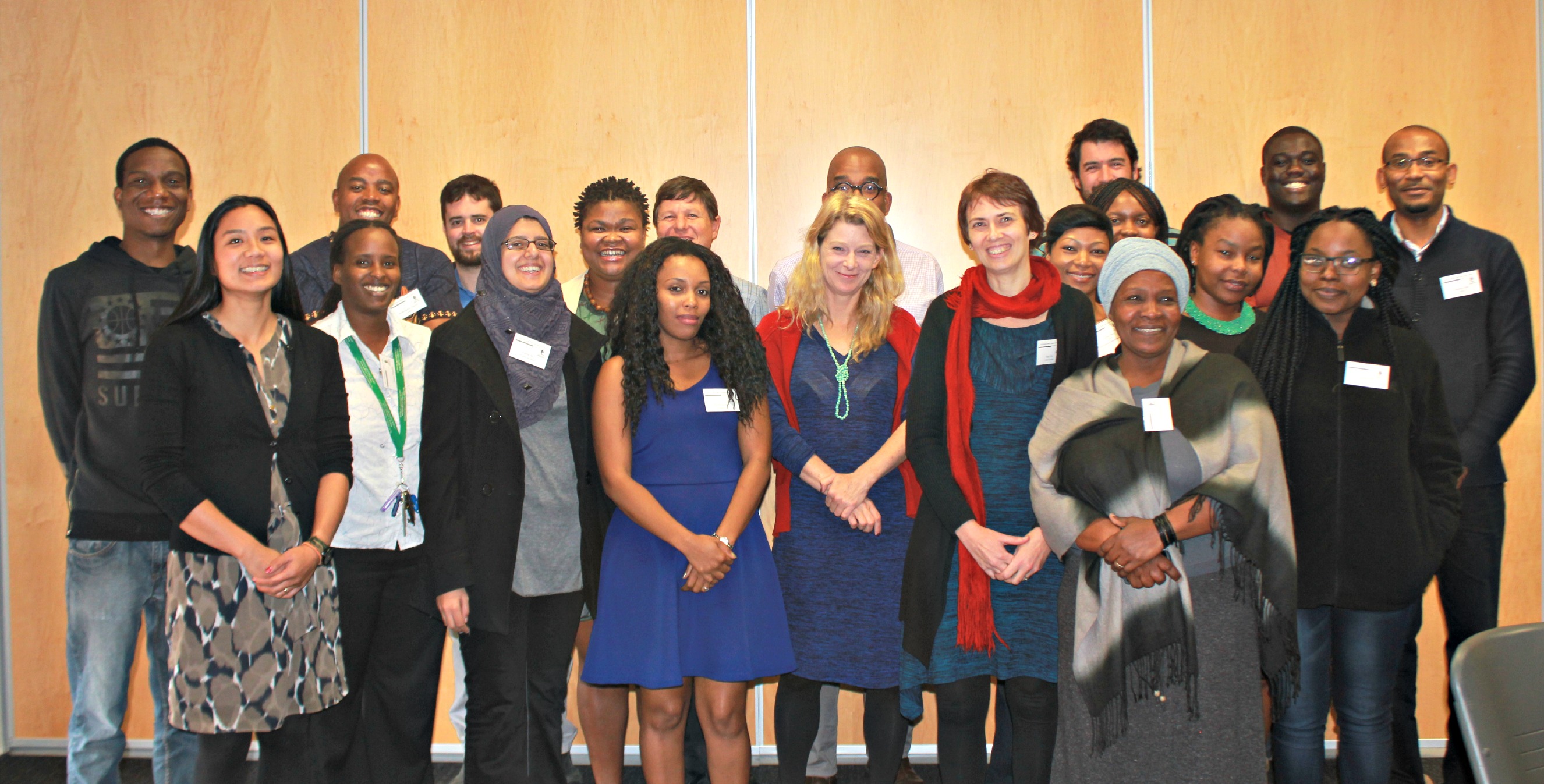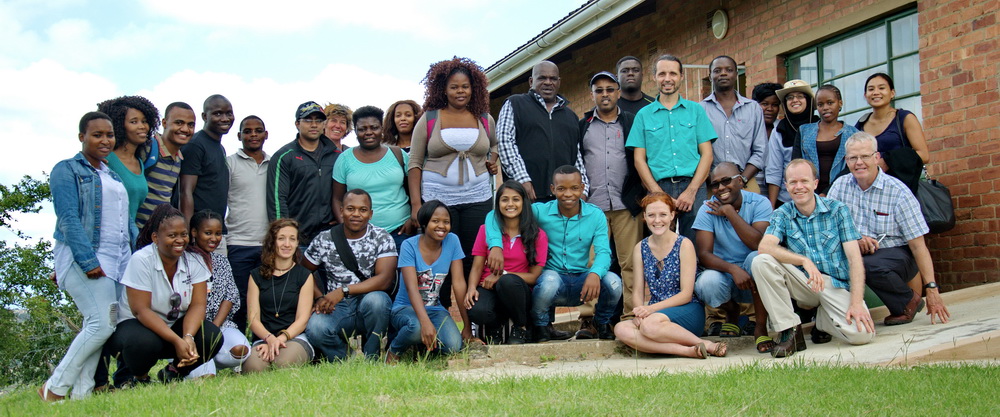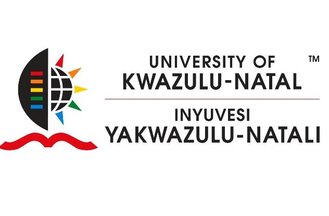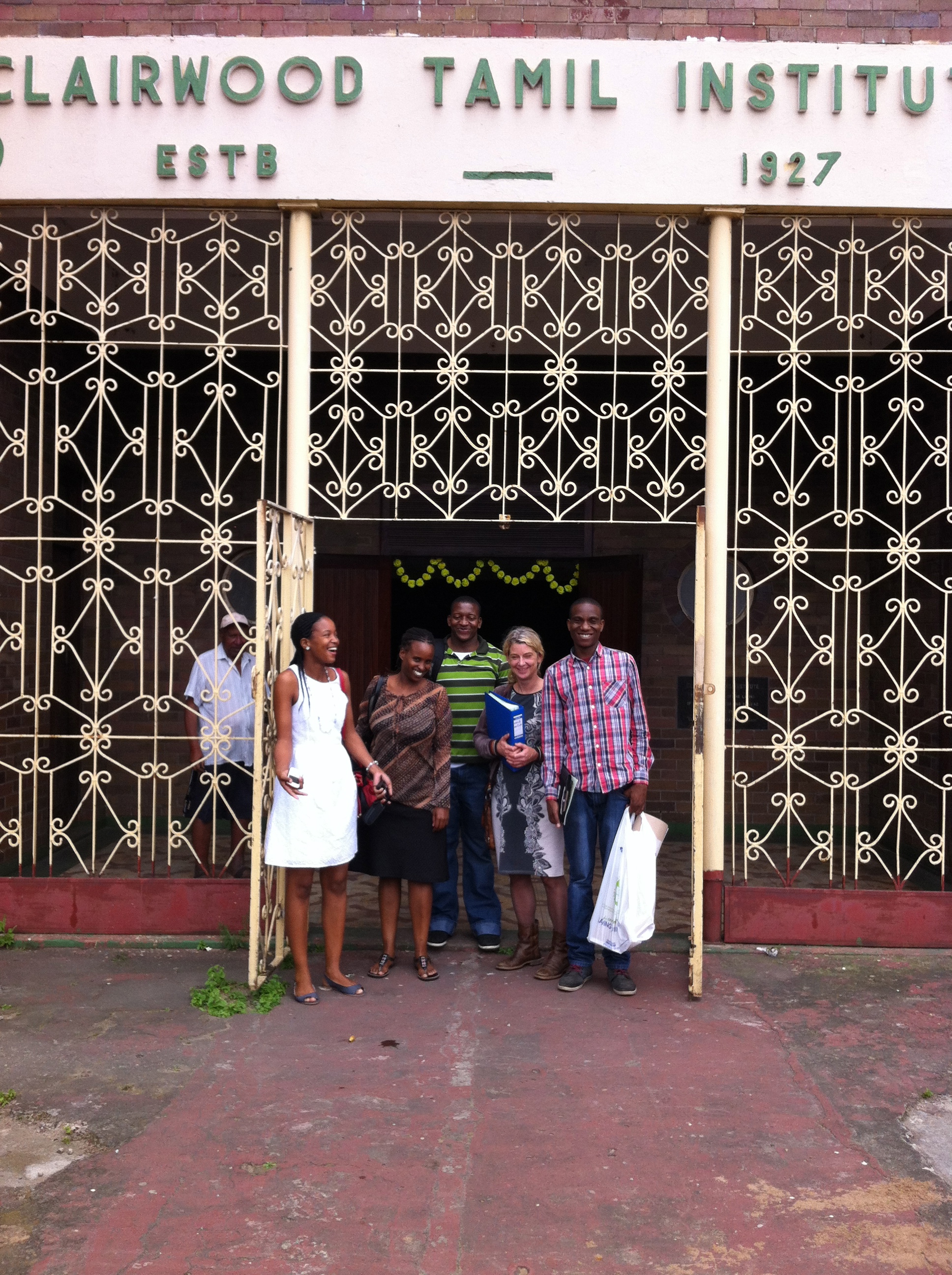The South African Research Chair initiative (SARChI) in Applied Poverty Reduction Assessment is pleased to announce two new 2015 TrustAfrica / UKZN Post Doctoral Fellowships.
Inception Workshop Focuses on Climate Change and Poverty
[This article was originally post on UKZN NdabaOnline: 26 Aug 2015, Vol 3, Issue 39]
A two-day inception workshop was hosted by UKZN’s South African Research Chair Initiative (SARChI) on Applied Poverty Reduction Assessment within the School of Built Environment and Development Studies (BEDS).
The workshop was organised to launch a new project titled: “Climate Change Adaptation and Poverty Reduction Co-benefits: Human Capabilities Towards Green Micro-Enterprise”, under the programme to support pro-poor policy development II (PSPPD II).
The meeting helped the new project team understand and discuss the current UKZN projects around climate change and socio-economic dimensions. The aim was to interact with stakeholders around the progress of their projects as well as to identify potential synergies from these related projects.
The new PSPPD II project involves the examination of the full portfolio of current climate change and poverty reduction co-benefits projects in eThekwini. This portfolio includes both government and non-government supported projects dealing with climate change adaptation, biodiversity and community livelihood interventions.
Such interventions seek to improve community resilience and well-being in the context of future ecological and biodiversity threats.
The SARChI on Applied Poverty Reduction Assessment has already begun work on climate change adaptation and poverty reduction co-benefits research.
Speaking about this, Professor Sarah Bracking said: ‘Given the interdisciplinary nature, the understanding of other UKZN related projects would add value to the context of the research. Research projects such as CLIMAYS and the UKZN/eThekwini Collaborative Research partnership are operating under similar contexts as this new project.
‘There may be shared interest and collaboration in our work and we invited them in order to explore such possibilities. Furthermore, this inception workshop hopes to both improve local and national practice, and to influence wider debates at global scale,’ said Bracking.
CLIMAYS representatives at the workshop, Ms Nolwazi Ntini and Ms Vicky Sim, were excited to be a part of the workshop stating that it was a robust interactive discussion. ‘It’s great to interact with researchers involved in the same strategic policies and to gauge the UKZN influence in this venture,’ they said.
A climate change lecture, delivered by American researcher and the project’s external advisor, Dr Michael Dorsey, examined Oligarchs & Climate Crisis: Implications for Africa and the Planet. It focused on global climate finance, climate change adaptation and ethnographic methodologies to research the key players in the global climate finance arena.
Melissa Mungroo
Corruption and its contemporary ‘collectivized’ form
Sarah recently writes in the Africa Report about the formation of corruption through a collective of private and public actors under “organized cliques”. Unfortunately this ‘collectivized’ is structural and leave “terrible effects of corruption on public finances and on the future wellbeing of South Africa’s poor, excluded and vulnerable.”
Read The Africa Report: Bracking, S. (2015, 25 Aug).“They have their own people they want to blame.”
UKZN RESEARCH ASSISTANTS
The NRF/DST South African Research Chair in Applied Poverty Reduction Assessment proposes to undertake research on government, private sector and civil society interventions that have been designed to reduce poverty. One of the objectives of the Chair is to improve and accelerate the training of highly qualified personnel through research. The proposed project is to assist with household surveys on the value of the livelihoods, property and businesses within the South Durban basin.
The Development Studies discipline seeks part-time research assistants to work on the survey and data. The posts will be for 300 hours (conducting at 12 hours per week for approximately 6 months) remunerated at standard University rates for postgraduate employment. At least one Masters and one Doctoral student will be employed.
Duties for the Research Assistants would include:
- Conducting data entry from the survey on to an electronic database;
- Transcribing taped interviews into text;
- Attending meetings on work milestones;
- Liaising with other team members and researchers; and
- Other research related tasks under the direction of the SARCHi Chair in Applied Poverty Reduction Assessment
For more information, click on this weblink.
Deadline: 2 September 2015
UKZN SARChI Masters postgrad bursaries
Masters Bursaries, 2015
The School of Built Environment and Development Studies, University of KwaZulu-Natal, is pleased to announce Masters Bursaries for 2015. There are two bursaries for Master’s study attached to the DST/NRF Research Chair in Applied Poverty Reduction Assessment, held by Professor Bracking. Students who receive these bursaries will work on a dissertation topic aligned with the focus areas of the Chair, and they will be supervised by Professor Bracking.
Applied Poverty Reduction Assessment Research Topics
The purpose of the Chair is to promote and undertake research and evaluation on government, private sector and civil society interventions that have been designed to reduce poverty. Topics being investigated include the impact on poverty of infrastructure development (for example, public housing, the port expansion) poverty reduction and climate change adaptation and mitigation, urban informality and livelihoods, food security, service delivery and social welfare policy.
For more information, click on this weblink.
DEADLINE: 2 SEPTEMBER 2015 (COMPLETED)
SARChI participates in Community Reforestation Research meeting
[photo taken by Errol Douwes]
The SARChI team attended the Research Inception meeting on the Community Reforestation Research Programme. This programme falls under the recently formalized, Durban Research Action Partnership (D’RAP). D’RAP is a joint research collaboration initiative between UKZN and eThekwini Municipality (EM). During this meeting, the participants embarked on a field visit to Buffelsdraai and Osidisweni areas. These areas are currently involved in a Buffelsdraai Landfill Site Reforestation Community Project (BLSRCP) managed by the Wildlands Conservation Trust (WCT). The project seeking to take currently tracts of sugarcane land and rehabilitate the area with indigenous forest around the landfill’s 800 hectare buffer zone.
The project recruits community members also referred to as “treepreneurs.” These are individuals from all walks of life dedicated in propagating indigenous tree seedlings into 15cm trees, which are then bartered for goods and services at the local retail stores. The SARChI of Applied Poverty Reduction Assessment plans to come into the project by exploring the human development impacts of this project as well as other climate change projects throughout the municipality. At the meeting, the principal investigators shared some of the research projects they intend to complete through the Masters and PhD bursaries provided through specifically the Community Reforestation project. The broader D’RAP platform allows for students, research assistants and senior researchers to share knowledge across disciplines and promote a teaching and learning spirit through various research methodologies.
The key purpose of the February 2015 visit was to participate in the workshop as well as to collect further firsthand information about the project. The D’RAP platform had also established that there remains existing social sciences research gaps and the SARChI chair hopes to contribute to this knowledge production through a new climate change and poverty reduction co-benefits project. This new SARChI project plans to:
- evaluate the relationship of climate change adaptation and poverty reduction policy co-benefits through case study assessment within a KwaZulu-Natal municipality South Africa and
- To develop a measurement instrument which can evaluate climate finance initiatives with poverty co-benefits.
Follow-up visits to the area by all stakeholders continues in which the project is monitored and evaluated against its primary objectives. And continuous engagements amongst the members of the partnership go-on producing beneficial ideas around making this project a success.
by Siyabonga Ntombela
What is “Green” in Climate Finance?
Falling under one of the SARChI research theme, Ecology and Poverty Reduction, Prof Bracking reports briefly in the Africa Report on the disturbing trends of climate finance, the possible market of speculative trading, use of derivatives and futures for “green bonds”. Not only do the financial patterns of such green bond trades seem to have the potential to end up like that of the “recent” financial crash, such “green” investments do not appear to put money into on the ground interventions which would in fact help to change the course of our planet’s global warming. Rather, without any definition of “green”, or the lack of actual plans of helping affected communities cope with climate-related issues mean that such patterns of finance and any implementing project can be used and mis-aligned to supposedly meet some subjectively vague climate initiative.
Read The Africa Report: Bracking, S (2015, 15 Feb). “Energy: Green bonds, bubbles and torrents” The Africa Report. URL: http://www.theafricareport.com/Columns/energy-green-bonds-bubbles-and-torrents.html
DST/NRF SARChI (Poverty Reduction) Masters Bursaries (2015)
School of Built Environment and Development Studies, University of KwaZulu-Natal
DST/NRF SARChI (Poverty Reduction) Masters Bursaries (2015)
The School of Built Environment and Development Studies, University of KwaZulu-Natal, is pleased to announce Masters Bursaries for 2015. There are two bursaries for Master’s study attached to the DST/NRF Research Chair in Applied Poverty Reduction Assessment, held by Professor Bracking. Students who receive these bursaries will work on a dissertation topic aligned with the focus areas of the Chair, and they will be supervised by Professor Bracking.
Applied Poverty Reduction Assessment Research Topics
The purpose of the Chair is to promote and undertake research and evaluation on government, private sector and civil society interventions that have been designed to reduce poverty. Topics being investigated include the impact on poverty of infrastructure development (for example, public housing, the port expansion) poverty reduction and climate change adaptation and mitigation, urban informality and livelihoods, food security, service delivery and social welfare policy.
Recognising the need for a trans-disciplinary approach to poverty impact assessment, applicants can intend to use conventional poverty impact assessment methodologies. However, applicants are also invited who wish to pursue qualitative and participatory approaches to analysing and measuring poverty and well-being and in exploring the efficacy of means employed to reduce poverty by whichever actor – public, private or civic.
Bursary and Fellowship Criteria:
To be eligible to apply:
Masters applicants must have an honours degree or equivalent with at least a lower second (above 65% or equivalent).
In addition to this bursary application, applicants are required to be accepted and registered in the discipline of Development Studies.
Bursary applications should consist of:
- A letter of motivation;
- A draft research design/intention of research subject (which can be changed later) of no more than 1 side of A4 at 1.5 line spacing.
- A C.V.;
- Full academic records;
- Stamped certificate of registration for the Masters programme; and
- The contact details of two academic referees.
In addition to the bursary, successful applicants will also receive support for field work and conference attendance, if research and conference plans are approved at the relevant milestones.
*Please note that you must provide proof of your Master’s programme application if you are waiting for proof of acceptance to the School.
Preference will be given to South African applicants who meet the correct standard of excellence, but all are encouraged to apply.
The deadline for bursary applications is 31 March 2015.
Applications should be submitted to: Mr. Stephen Olivier (sds.olivier@gmail.com) – (Rm F201, MTB), and Prof Bracking (bracking@ukzn.ac.za), using the email header: DST/NRF Bursary Application 2015.
For further information, please see http://sds.ukzn.ac.za/
[URL Reference: http://notices.ukzn.ac.za/ViewNotice.aspx/24394]
UKZN SARCHi attend 2nd National Conference on Global change
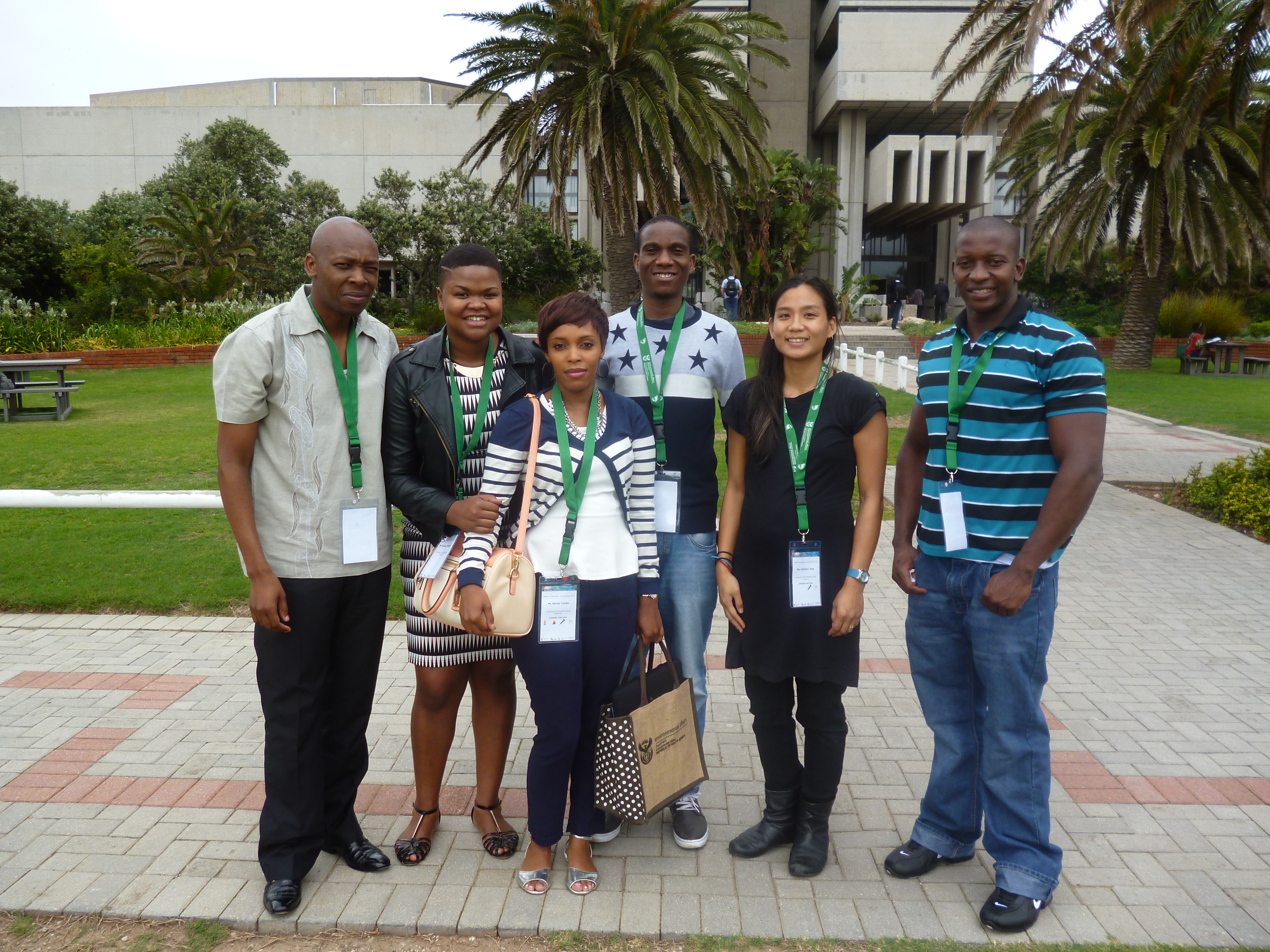
The South African Research Chair on Applied Poverty Reduction Assessment (SARCHi) team from UKZN’s School of Built Environment and Development Studies (BEDS) recently attended the 2nd National Conference on Global Change at the Nelson Mandela Metropolitan University in Port Elizabeth.
The theme of the conference was: “Global Change research in South Africa: towards integration across disciplines, sectors and scales”. The main purpose of the conference was to bring together the diverse global change research community in South Africa and to share recent research progress and outcomes across the broad scope of the NRF’s Global Change Grand Challenge (GCGC) programme.
The conference was attended by post-graduate research students, emerging researchers and well-known researchers and professors from South Africa and internationally.
Team SARCHi presented papers that were based on research done in conjunction with the Leverhulme Centre for the Study of Value (based at the University of Manchester) and the South Durban Community Environmental Alliance (SDCEA). The study’s analysis and the conference trip were sponsored by the South African Research Chairs initiative of the Department of Science and Technology and National Research Foundation of South Africa.
Development Studies Master student, Miss Ayanda Tshabalala presented a paper titled: Notions of Sustainability and Development: With a particular reference to the Clairwood, Durban Port Expansion. Is it geared towards poverty reduction?
Her paper interrogated whether the proposed Durban port expansion will have any valuable development advantages for the local community of Clairwood. ‘The proposed port expansion will focus on providing formal employment in a time when the South African economy has been plagued by jobless growth. The question remains how this infrastructure will fit within the current realities of residents in Clairwood which remain a mix of both formal enterprises and informal businesses activities,’ she said.
Another Master’s student, Mr Tawonga Rushambwa’s research focused on sustainable development, economic development, prosperity, social inclusion and good governance using Clairwood community in Durban as a case study.
Post-doctoral researcher, Dr Sithembiso Myeni’s paper touched on government-subsidised housing as a tool to reduce poverty and the power relations involved in this process within KZN. ‘Poverty reduction is not always a necessary criterion which influences either the mapping or the profiling of housing beneficiaries. There was also a problem of competing and contradictory decision making processes between the stakeholders,’ said Myeni.
The team’s Research Manager, Ms Kathleen Diga also presented a paper titled: Climate Change adaptation and poverty reduction co-benefits: a case study of eThekwini Municipality.
Her work investigated how human development or socio-economic factors were being considered within an externally funded climate financed project. She looked at an exploratory desktop case study of the Buffelsdraai Community Reforestation Programme based in the eThekwini metropolitan municipality.
Another interesting paper, looking at the recent upsurge of subsistence farming activities in the urban areas of Bulawayo in Zimbabwe, was tackled by Development Studies PhD student, Mr Danford Chibvongodze. His paper interrogated the processes that have led to this phenomenon called Rurbanisation, or the “process of practicing rural subsistence activities in an urban-style landscape” (Trefon, 2002:490). It also looked at the perceptions of this new phenomenon by the residents of Bulawayo.
An interactive student debate on “Environmental concerns are playing too much of a role in shaping South Africa’s future energy system” saw Ms Mandy Lombo, Masters student in Development Studies, participating as part of the team called The Voice.
Debate participants included other students from the UKZN Pietermaritzburg campus, Ms Nasiphi Ntshanga, and Mr Sibu Majozi and students from the University of Witwatersrand and the University of the Western Cape. The audience was able to participate in the debate via twitter.
‘The conference was a learning experience, and it was also a chance to meet students and researchers from other universities in the hope of future collaborations and projects. The conference also changed the way one perceives the world around us and environmental concerns,’ said Lombo.
Words by Melissa Mungroo & Mandy Lombo
Picture by Sithembiso Myeni
UKZN SARChI engages with the Clairwood Community
[Photo: The SARChI team from UKZN’s School of Built Environment and Development Studies (BEDS) at the Clairwood Tamil Institute.]
The South African Research Chair on Applied Poverty Reduction Assessment (SARChI) team from UKZN’s School of Built Environment and Development Studies (BEDS) recently visited the Clairwood Tamil Institute to present to the community the preliminary research findings from the 2013 Clairwood community value survey.
Together with the Leverhulme Centre for the Study of Value and the South Durban Community Environmental Alliance (SDCEA), the UKZN team conducted research that hoped to highlight some of the alternative socio-economic elements which may have been missed from previously written reports on the economic value of the port expansion, as well as provide input on how the residents perceived value within their community.
The meeting intended to be a community engagement with the results of the survey and to allow for the community to provide feedback on the results and the process to date. In attendance were the South Durban Community Environmental Alliance’s Mr Desmond D’sa and Professor Sarah Bracking who both helped to facilitate the workshop.
The SARChI team gave presentations on the varying aspects of the report. Development Studies PhD candidate, Mr Danford Chibvongodze presented on the theme, Business and Economic activities in Clairwood, on behalf of his team (with Master’s student, Ms Ayanda Tshabalala). The presentation gave a brief explanation around the business enterprises in the area, with emphasis on informal activities which exist in Clairwood.
He also highlighted how the mix of formal industry and informal trade boost the economy of the area and provide various employment opportunities to the nearby residents.
Development Studies Masters students, Ms Mandy Lombo and Ms Nduta Mbarathi presented on the current living conditions of the inhabitants of Clairwood.
‘Findings from our study show that the area has faced severe neglect, particularly in terms of basic municipal services, such as waste collection as well as the general maintenance of the area. Clairwood residents, while many do receive local services to their homes, others also experience poor sanitation due to lack of water and toilets facilities,’ said Lombo.
Research manager Ms Kathleen Diga and Masters Student Ms Mbali Mthembu presented on community social cohesion, sense of belonging and the immaterial values which have been established in the area since the community started building 150 years ago.
‘The Clairwood community saw many of the schools and places of worship built by the community. These historical places bring about social cohesion, and there is a perception of racial harmony and a rich diverse culture in the area,’ said Diga. The presentation also revealed that Clairwood was a close-knit community that helped each other during times of hardship.
Master’s student, Mr Tawonga Rushambwa and SARChI Chair, Prof Sarah Bracking did a brief presentation aimed to look at how large infrastructural development can affect communities such as Clairwood. The presenters emphasised that the area should remain as it is because of its historic heritage and diversity. It was suggested by the community that development should rather take place in the eastern industrial zone in order for the expansion to not encroach onto the residential areas, but still bring economic development.
‘The residents were very vocal against uninformed development, many were quoted saying that the government was biased towards the needs of business and this preference was to the detriment of the local residents. They felt that they were not properly consulted about the proposed expansion,’ said Lombo.
She further added that they were also worried that they will lose their homes, businesses and jobs, and would not be able to secure their current opportunities anywhere else. ‘The residents were concerned around safety as they have seen an increase in illegal businesses on residential properties, and the trucks on the roads are causing many accidents.’
‘The residents are hopeful that the government would instead provide them with much needed housing, water and electricity rather than move them away as this would disrupt a currently strong cohesive community with important historical ties to Clairwood.’
Words by Melissa Mungroo & Mandy Lombo
Pictures by Kathleen Diga
